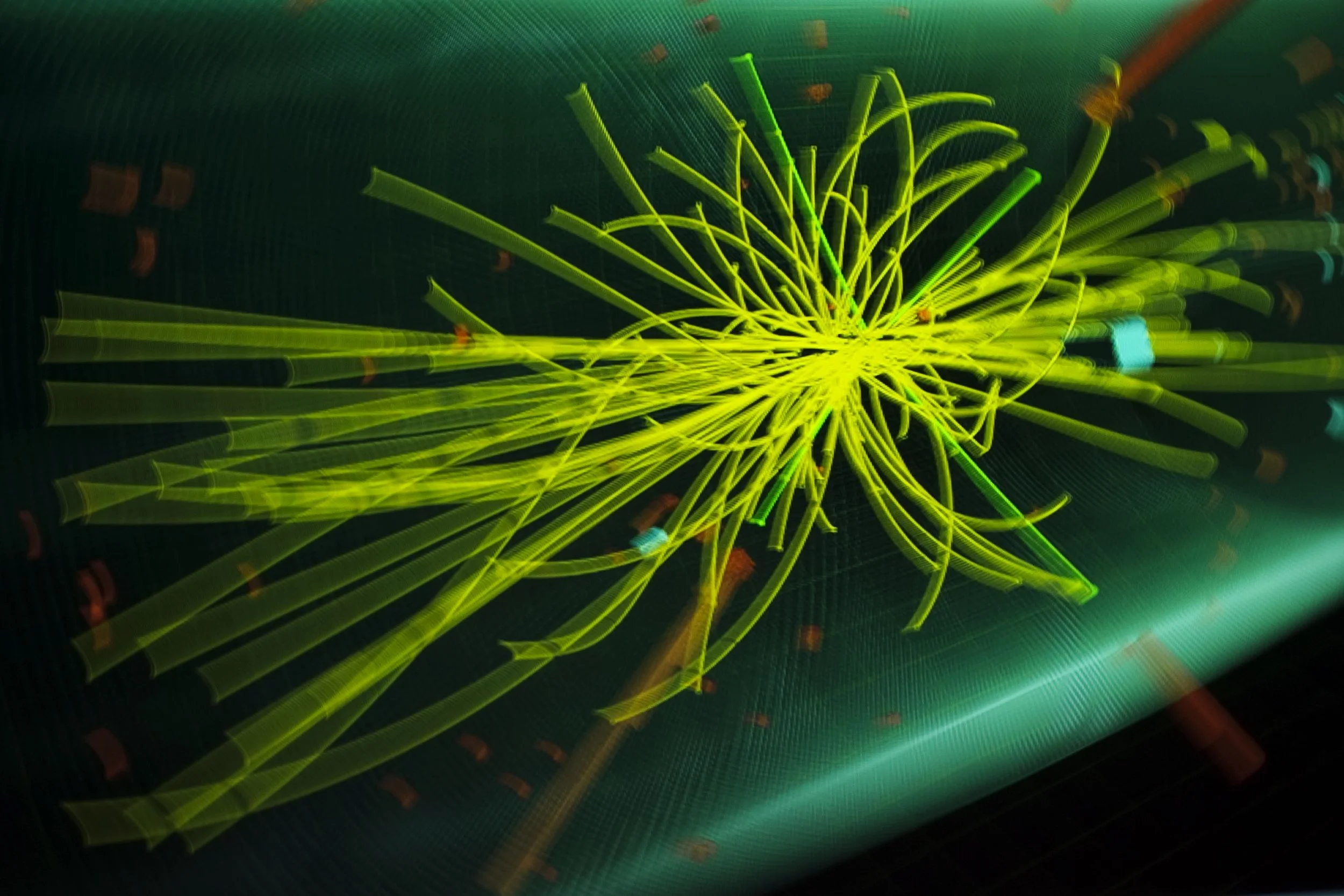Fables of the God Particle
Written By: Arman Momeni
Let me tell you the story of The God Particle.
In the standard model of the universe, there coexists two types of elementary particles: fermions and bosons. Fermions are particles that create matter, whereas bosons are particles that induce mass. Fermions are the standard building blocks of all matter in the universe. They are further divided into quarks and leptons. Single quarks combine to form protons and neutrons (among other more complex particles), whereas leptons are subatomic particles that carry a single unit of charge, such as the electron. Bosons, on the other hand, carry energy and forces throughout the universe beyond just providing particles with masses. Bosons are responsible for acting as the carriers of three out of the four fundamental forces in the universe: electromagnetism, the strong nuclear force, and the weak nuclear force.
On a larger scale than particles, there exists what we denote as fields; not like a soccer field or football field, but like invisible force fields. These fields, while not visible to the human eye, are rather important to the formation and behaviour of our universe. These fields govern interactions between different types of particles, which cause certain phenomena within our universe, such as magnetism! One such crucial field in the universe is the Higgs field.
The Higgs field was proposed by Peter Higgs, a British theoretical physicist from the University of Edinburgh. The Higgs field filled up the universe mere seconds after the Big Bang, and it is known for its magic ability to “give” mass to particles that interact with it.
So where does The God Particle come in to play?
The God Particle itself, is referred to as the Higgs boson particle, which is the particle known to permeate this mysterious, and rather enticing, Higgs field. The Higgs boson is constantly interacting with other particles within the field, which causes those particles to receive mass. As a particle gains mass, it loses its ability to travel at the speed of light, which is why you and I can’t run around the world in a mere second.
According to Newton’s Law of Universal Gravitation, any two objects attract each other which a relationship proportional to the product of their masses and inversely proportional to the square of the distance between them. If the Higgs field didn’t exist, then particles wouldn’t have mass, and thus, could not attract each other. The product of 0 and 0 equates to 0, therefore, there is no attraction, and particles would freely float around in space.
However, there’s one problem with the Higgs field. How can mass be generated from thin air? Well, it can’t. That would defy the laws of conservation, which state that mass can neither be created nor destroyed. Mass isn’t actually created by the Higgs field. It’s gained by particles through their interactions in the Higgs field with the Higgs boson particle. The Higgs boson contains the relative mass of a particle through a certain amount of energy and that energy is transferred to the particle in the form of mass, causing the particle in the field to slow down as it becomes heavier.
Here's the twist. The God Particle isn’t endowed its name because of its god-like ability to provide mass to all particles. The origin of its name comes from Nobel Prize-winning physicist Leon Lederman. Due to the immense difficulty of detecting the particle, Lederman constantly referred to the Higgs boson as the “Godamn Particle.” However, when Lederman authored a book on the Higgs boson, the title of his book “The Godamn Particle” was abruptly changed by publishers to “The God Particle.”
The title stroke a worrying connection to religion that still bothers physicists to this day.
Works Cited:
Britannica, T. Editors of Encyclopaedia (2024, February 22). lepton. Encyclopedia Britannica. https://www.britannica.com/science/lepton
Lea, R. (2022, September 8). What are bosons?. Space.com. https://www.space.com/what-are-bosons
Lea, R. (2022a, June 30). Higgs boson: The “god particle” explained. Space.com. https://www.space.com/higgs-boson-god-particle-explained#
